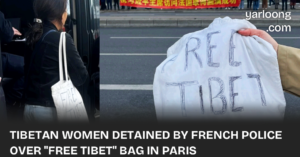
In China, the surveillance of foreign journalists has reached new heights, with drones, social media monitoring, and direct harassment becoming all too common, according to the latest report by the Foreign Correspondents’ Club of China (FCCC). The report details numerous challenges faced by journalists, from physical following to digital spying.
According to the FCCC survey, which gathered responses from members, four out of five journalists reported experiences of “interference, harassment, or violence” while reporting within the country over the past year. These encounters ranged from being shadowed by drones during field reports to outright detentions and threats concerning their work permits if they covered sensitive topics.
One vivid account from the survey describes a group of journalists who were followed by drones in Poyang Lake while reporting on environmental issues. “We were monitored by drones after being blocked by a sandy road, showing the lengths to which surveillance has reached,” one journalist reported. Similarly, in provinces affected by climate change, journalists noted that their movements were closely watched by drones and plainclothes officers, indicating a sophisticated surveillance system.
The FCCC report highlights that local governments in China are increasingly employing technology to track foreign media personnel’s activities. “The Chinese surveillance system adapts quickly and the space for independent reporting is continuously shrinking,” a European newspaper journalist described, portraying the situation as an “endless cat-and-mouse game.”
The digital privacy of journalists is also under significant threat, with high percentages of reporters believing that their communications devices such as WeChat (81%) and phones (72%) have been compromised. Some even suspect that bugs have been placed in their homes or offices.
ALSO READ: China Faces Over $3 Billion in Losses from Natural Disasters in Early 2024
Furthermore, the report touches on the severe restrictions journalists face in particularly sensitive areas like Xinjiang. “The entire time we were there, we were followed,” a journalist shared about their experience in Xinjiang, underscoring the intense scrutiny in regions with ethnic and political tensions.
The FCCC’s findings also reveal the broader impact of these surveillance tactics, with over 80% of journalists stating that potential sources are often too intimidated to give interviews without prior approval from authorities. This atmosphere of fear extends to academics and analysts, many of whom decline interviews or insist on anonymity due to the risk of reprisals.
This increasing surveillance and obstruction have raised significant concerns about the freedom of the press and the ability of journalists to conduct thorough and independent reporting in China. The FCCC is calling for more awareness and international dialogue to address these pressing issues facing foreign correspondents in the country.






